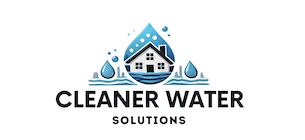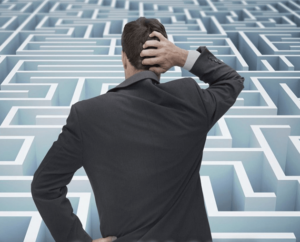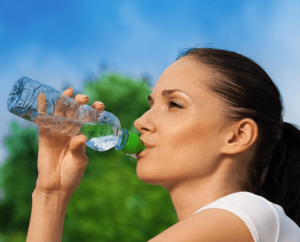For many homeowners, the question of whether to install a water softener often comes down to balancing cost against convenience. While hard water might not seem like a significant issue at first, the long-term effects can be more severe than most people realize. From damaged appliances to increased energy costs and potential skin and hair problems, hard water can impact both your household’s comfort and your wallet. In this article, we’ll explore the benefits of installing a water softener, the potential health concerns related to hard water, and whether a water softener is worth the investment for your home.
What Is Hard Water?
Hard water is water that contains high concentrations of dissolved minerals, primarily calcium and magnesium. These minerals are picked up as water passes through soil and rocks, making it “hard” when it reaches your home. The U.S. Geological Survey (USGS) estimates that 85% of American homes have hard water to some degree.
You can identify hard water by the following signs:
Soap scum and residue: Soap doesn’t lather well in hard water, often leaving behind a film on skin, hair, and bathroom surfaces.
Stiff laundry: Clothes washed in hard water can feel rough, look dull, and wear out more quickly.
Limescale buildup: Hard water leaves white, chalky deposits (known as limescale) on faucets, showerheads, and inside appliances like dishwashers and water heaters.
Plumbing issues: Mineral deposits from hard water can accumulate in pipes, reducing water flow and causing blockages.
Health Concerns Related to Hard Water
While hard water is generally considered safe to drink, it can have some health effects, especially when it comes to skin and hair. The high mineral content in hard water can cause dryness and irritation, particularly for individuals with sensitive skin or conditions like eczema. According to a study published in the Journal of Investigative Dermatology, exposure to hard water can lead to increased irritation and exacerbate skin conditions due to the mineral residue left on the skin, which can disrupt its natural barrier.
Additionally, the American Academy of Dermatology reports that washing in hard water can leave a film of soap on the skin, leading to clogged pores and exacerbating issues like acne. The minerals in hard water can also strip hair of its natural oils, leading to dryness, breakage, and a dull appearance.
For families with children, particularly those prone to skin sensitivities, the health benefits of softened water are worth considering. Soft water, which is free from the excessive minerals found in hard water, is gentler on the skin and hair, making it an appealing option for households looking to reduce skin irritation.
The Benefits of Installing a Water Softener
Installing a water softener can provide numerous advantages that go beyond just improving the quality of your water. Here are the key benefits:
- Extended Appliance Lifespan
One of the most significant benefits of soft water is its ability to protect your home’s appliances from the damaging effects of limescale buildup. According to a report by the Water Quality Association (WQA), hard water can reduce the efficiency and lifespan of water heaters, dishwashers, washing machines, and other appliances by up to 50%. The constant exposure to mineral deposits forces these appliances to work harder, which not only increases energy consumption but also leads to costly repairs or replacements.
A study by the Battelle Memorial Institute found that water heaters using softened water maintained their efficiency for over 15 years, while those with hard water experienced a 48% efficiency loss within the same period. By installing a water softener, you can extend the life of your appliances and reduce the frequency of maintenance, saving money in the long run. - Energy Savings
Hard water affects more than just your appliances—it also increases your energy bills. Limescale buildup inside water heaters forces them to use more energy to heat the same amount of water. The Battelle Memorial Institute study mentioned earlier found that water heaters running on soft water use up to 29% less energy than those operating with hard water.
Given that water heating accounts for about 18% of a home’s energy use, according to the Department of Energy, this translates to significant savings on your monthly utility bills. In fact, the WQA estimates that homes using soft water can save up to $70 to $80 per month in energy costs, depending on usage. - Better Cleaning Efficiency
Hard water doesn’t interact well with soap and detergent, making it harder to get things clean. Soap tends to form a sticky film in hard water rather than lathering effectively, leading to soap scum on dishes, clothes, and even your skin. As a result, you end up using more soap and detergent to compensate for the poor performance, driving up household costs.
With soft water, soap and detergents lather more easily, allowing you to use less while achieving better results. Dishes come out cleaner, laundry feels softer, and there’s no more soap scum left behind on bathroom surfaces. This also means that you’ll spend less on cleaning products, further adding to the savings over time. - Improved Skin and Hair Health
As noted earlier, hard water can leave skin feeling dry and irritated, while also contributing to hair damage. By installing a water softener, you’ll notice immediate improvements in both areas. Soft water is gentler on the skin, helping to retain its natural oils, and leaves hair feeling smoother and more manageable.
For individuals with eczema, psoriasis, or other skin conditions, the switch to soft water can provide relief from the irritating effects of hard water. The National Eczema Society in the UK even recommends the use of soft water for those suffering from eczema, particularly in areas where hard water is prevalent. - Prevent Plumbing Problems
Over time, the mineral deposits from hard water can build up in your plumbing system, narrowing the pipes and leading to reduced water flow. In extreme cases, these blockages can result in costly repairs or pipe replacements. Soft water prevents the buildup of these deposits, allowing your plumbing system to function more efficiently and reducing the likelihood of expensive plumbing issues down the line.
Are There Any Downsides to Water Softeners?
While water softeners offer a range of benefits, there are a few considerations to keep in mind:
Sodium Content: Water softeners work by exchanging the calcium and magnesium in hard water with sodium ions. As a result, softened water contains small amounts of sodium, which may be a concern for individuals on low-sodium diets. However, the amount of sodium added is typically minimal, and alternative systems that use potassium instead of sodium are available for those concerned about salt intake.
Environmental Impact: Some municipalities have raised concerns about the environmental impact of water softeners, particularly those that use salt. The sodium discharged during the softening process can contribute to increased salinity in wastewater, potentially affecting local ecosystems. However, newer models of water softeners are designed to minimize environmental impact by reducing the amount of salt needed for regeneration.
Real-World Examples and News Coverage
The use of water softeners has garnered attention in recent years, as more cities and communities experience the consequences of hard water:
San Antonio, Texas: In 2021, San Antonio experienced a surge in public interest in water softeners after the city’s water utility reported that mineral deposits were causing increased water heater malfunctions and driving up energy costs for homeowners. The city advised residents to install water softeners to protect their appliances and lower utility bills.
Phoenix, Arizona: Phoenix, which has some of the hardest water in the U.S., has seen a growing demand for water softeners as residents seek to protect their plumbing and improve the quality of their water. A local news report by ABC15 Arizona highlighted the cost savings residents experienced after installing water softeners, with some homeowners reporting up to a 20% reduction in their energy bills.
Conclusion: Are Water Softeners Worth It?
For many households, the answer is a resounding yes. The benefits of installing a water softener—ranging from protecting your appliances and plumbing to improving the health of your skin and hair—make it a worthwhile investment. Not only can a water softener save you money in the long term by reducing energy bills and preventing costly repairs, but it also offers peace of mind knowing that your home’s water is of the highest quality.
If you live in an area with hard water, the upfront cost of a water softener will likely be recouped through lower maintenance costs, extended appliance lifespan, and improved household efficiency. And for families with children or those prone to skin sensitivities, the switch to soft water can provide tangible health benefits.
Ultimately, installing a water softener can lead to a cleaner, more comfortable home—and fewer headaches for homeowners.
If you’re ready to improve your home’s water quality, contact Cleaner Water Solutions today for a free consultation and water test. We’ll help you find the perfect solution for your family’s needs, ensuring your water is soft, safe, and stress-free.




